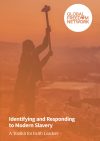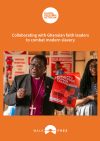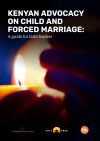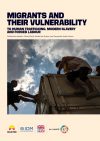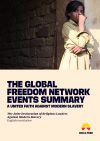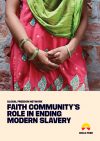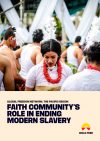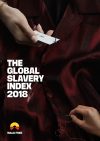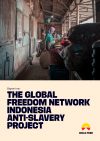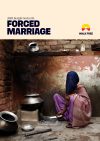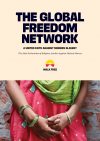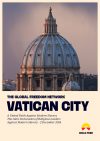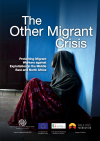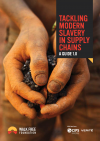Faith
With faith – and each other – we can eliminate modern slavery in our generation.
Why faith leaders should act
Faith leaders are teachers
While each may have a different lesson plan, many of the core concepts ring true in every classroom. In this way, faith does more than simply set moral boundaries; it can unite people from all walks of life and all parts of the world in a common cause.
In these complicated times, the importance of faith as a moral compass has been magnified, not diminished. Currently, 85 per cent of the world’s population are members of, or identify with, a religious faith. As faith leaders who interpret how ancient holy words apply to modern problems, you are in the unique position to guide and influence action across this truly global audience.
A cornerstone in many religious teachings is the idea of caring about your neighbour. Yet, on any given day in 2021, an estimated 49.6 million people were living in modern slavery.
Each of them, a neighbour.
Faith leaders, together with the many faith-based organisations already active in striving to reduce suffering and working to protect the vulnerable, can empower their communities by providing them with the faith-based ideas, information, and tools necessary to act.
What can faith do?
Increasing awareness of modern slavery
By discussing modern slavery with congregations, communities, and during interactions with governments and the private sector, faith leaders can share resources and develop training on the risk and indicators to deepen understanding of the realities of modern slavery. Engaging with emerging faith leaders and clergy, encouraging them to learn about the topic and spread the word, organising guest speakers or workshops, as well as educating youth will also help to raise awareness.
Faith can also prepare religious services on modern slavery, including hosting prayer sessions on July 30 (United Nations World Day against Trafficking in Persons) or December 2nd (International Day for the Abolition of Slavery) to bring attention to the plight of the victims of human rights violations. Example prayers include a solidarity prayer service for an end to human trafficking, prayers of the Faithful from Caritas Australia, and prayers from World Vision.
Supporting SURVIVORS
Linked to raising awareness, faith leaders can share indicators of modern slavery with those who attend gatherings or come forward for help. They can play a vital role in referring survivors to professional and trusted providers of respite and relief.
Addressing the problem
By advocating and lobbying governments to influence legislative reforms, and encouraging assistance services for victims, faith can directly influence modern slavery policy. Allocating, educating, and training a focal point within local religious institutions can also assist to drive action in the community.
Faiths and places of worship often have large and complex supply chains – getting to know these supply chains and where goods and services are sourced is a first step to ensure that supply chains are free from modern slavery. Engaging with business leaders to clean up their supply chains and committing to internal and external auditing of supply chains, and public reporting of audit outcomes will also drive action on the issue.
Featured project
Global Freedom Network
Global Freedom Network is the faith-based arm of Walk Free. We recognise that faith can play a vital role in fighting modern slavery because faith leaders are in a unique position to see into the hearts of their communities.
With a philosophy built on interfaith collaboration, Global Freedom Network has worked since its inception in 2014 with faith leaders around the world to build bridges between victims and law enforcement, cooperative connections with governments, social workers and victim support groups, especially in countries of strong faith and high prevalence of modern slavery.
By building relationships and collaborating with faith leaders and faith-based organisations we believe we can increase awareness, understanding, impact, and action.
